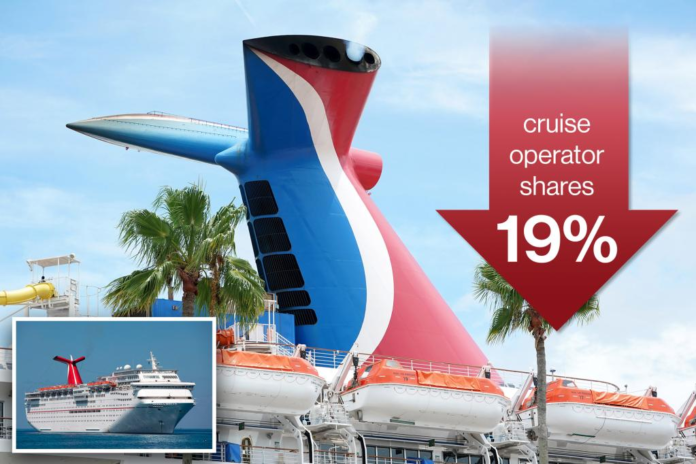Carnival on Friday forecast a loss for the fourth quarter as higher fuel prices and rising costs of everyday essentials delay its return to profitability, sending the cruise operator’s shares down 19% in midday trading.
Decades-high inflation has further hit cruise operators that have been running at a loss ever since the pandemic broke out in 2020 for an array of reasons including lockdowns, bans on cruises, safety and pandemic-led shortages of labor.
Adding to its challenges, Carnival has been heavily discounting and ramping up advertisements to attract passengers after a long pandemic-led interval.
It also has a higher exposure to the mass-market category that has been more affected by inflation. The company said it expects break even to slightly negative adjusted earnings before interest, taxes, depreciation and amortization for the fourth quarter ending Nov. 30.
Web travel and leisure analyst Jim Corridore said the downward revision to the fourth quarter is not related to demand or revenue but to rising costs to restart operations, supply chain issues and likely higher labor, food and fuel costs.
Decades-high inflation has further hit cruise operators that have been running at a loss ever since the pandemic broke out in 2020. Christopher Sadowski
The cruise operator’s cumulative advance bookings for the current quarter are below the historical range and at lower prices. Earlier this year, Carnival forecast a loss for the year as Moscow’s invasion of Ukraine added further challenges.
The cruise operator’s revenue in the third quarter ended Aug. 31 rose to $4.31 billion from $546 million a year earlier, but missed analysts’ average estimate of $4.90 billion, according to IBES data from Refinitiv.
Net loss, however, narrowed to $770 million, or 65 cents per share, from $2.84 billion, or $2.50 per share, a year earlier.




